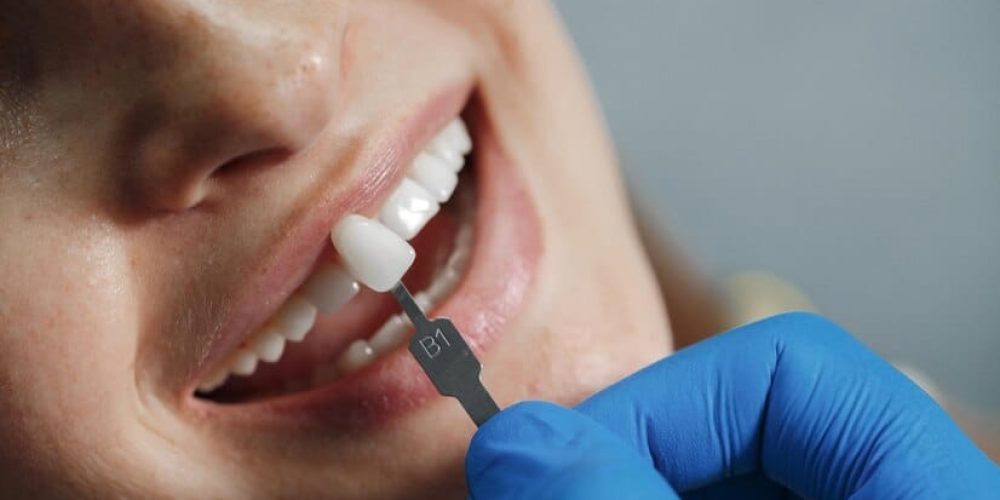A dental implant replaces a lost tooth by placing a small screw into your jawbone that acts like a strong post. Once it heals a custom crown is attached using an abutment that links the crown to the implant. This new tooth is made to fit your mouth and match your tooth color so it looks feels and works like a natural tooth.
Dental Implants
- Home
- Dental Implants
Have questions? We're here to help!

Dental Implants
The price of dental implants in India
The cost of dental implants in India can change based on many things. A dentist can give you an estimated price during your first visit. Some insurance plans may cover part of the cost. Below we share how much implants cost in India and what affects the final price.
Cost of Dental Implants in India
For a single dental implant, including its prosthetic component (such as a cap or crown), the cost typically ranges between INR 35,000 to INR 45,000 ($410 to $550), depending on the brand and type of implant selected. Patients opting for a full-mouth dental implant should expect a significantly higher expense, which varies by location, with costs ranging from INR 4,22,000 to INR 6,00,000 ($5,000 to $7,100).
Types of Dental Implants and Their Costs
| Type of Dental Implant | Price |
|---|---|
| Single Implant | $400 to $600 |
| Implant-Supported Bridge | $1,500 to $2,000 |
| All-on-4 Implants | $2,100 to $2,800 |
| Multiple Implants | $4,000 to $5,000 |
Cost of Dental Implants in Different Indian Cities
| City | Single Implant | Full Mouth |
| Delhi | $400 to $600 | $5,500 to $7,000 |
| Mumbai | $450 to $650 | $6,000 to $7,500 |
| Hyderabad | $350 to $600 | $5,000 to $7,000 |
| Chennai | $400 to $600 | $6,000 to $7,000 |
| Bangalore | $500 to $700 | $6,000 to $8,000 |
| Gurgaon | $400 to $600 | $5,700 to $7,200 |
Factors Affecting Dental Implant Costs in India
Several factors impact the price of dental implants:
- Clinic Location: Prices vary based on the clinic’s location and reputation, with metropolitan areas charging more than smaller towns.
- Surgeon’s Experience: A highly skilled and renowned dental surgeon may have higher fees compared to a less experienced practitioner.
- Type of Implant: The cost varies depending on the type of implant, such as endosteal (placed within the bone) or subperiosteal (positioned on top of the jawbone).
- Number of Implants: Replacing multiple teeth increases the overall cost.
- Material Used: Titanium implants are standard, while zirconia implants tend to be more expensive.
- Additional Procedures: Some patients require sinus lifts or bone grafting, which can increase the total expense.
- Implant Position: The placement of implants within the jaw can affect pricing.
- Surgery Type: Traditional implant surgery is typically less costly than guided implant surgery.
- Abutment and Crown Choices: Zirconia abutments and porcelain crowns are more expensive than standard options.
- Anesthesia Used: The type of anesthesia administered can also influence costs.
Understanding Dental Implants
A dental implant consists of a titanium post surgically inserted into the jawbone, replacing a missing tooth’s root. After placement, a dental specialist secures a crown onto the implant, creating a natural-looking replacement.
Types of Dental Implants
- Endosteal Implants: The most common type, these implants are surgically placed into the jawbone in the form of screws, cylinders, or blades. They support one or more prosthetic teeth and are ideal for individuals with sufficient jawbone density.
- Subperiosteal Implants: Positioned on top of the jawbone, these implants use metal posts that protrude through the gum. They are suitable for patients with insufficient bone height for endosteal implants.
Dental Implant Procedure
Before undergoing surgery, the dentist conducts several diagnostic tests, including X-rays, to evaluate the structure of the teeth and jaw. The procedure is typically performed by a team of specialists, including:
- Oral and Maxillofacial Surgeon: Specializes in jaw, mouth, and facial conditions.
- Periodontist: Focuses on gum health and bone support for the teeth.
- Prosthodontist: Designs and fits artificial teeth.
- Otolaryngologist: A specialist in ear, nose, and throat conditions.
Types of Dental Implant Procedures
- Single-Tooth Implant: Used to replace one missing tooth.
- Multiple-Tooth Implant: Suitable for replacing several missing teeth with multiple implants.
- Full-Mouth Implant: Designed for individuals missing all their teeth, providing a complete set of implants.
- Sinus Augmentation: Increases bone volume in the upper jaw to support implants.
- Ridge Modification: Corrects jaw irregularities by adding bone material to improve implant success rates.

Benefits of Dental Implants
Dental implants offer multiple benefits beyond merely replacing missing teeth:
- Improve chewing and speaking ability.
- Provide a stable, long-term solution compared to traditional dentures.
- Promote new bone growth, preserving jaw structure and preventing bone loss.
- Require minimal maintenance and can last a lifetime with proper care.
How to Choose a Hospital in India for Dental Implants
For individuals seeking dental implants in India, selecting the right hospital is crucial. Patients should consider the following:
- Accreditations and Certifications: Ensure the hospital meets quality and safety standards.
- Location and Accessibility: Choose a facility that is conveniently located.
- Medical Team Expertise: Opt for hospitals with experienced dental surgeons and specialists.
- Advanced Technology: Select clinics with modern diagnostic and treatment equipment.
- International Patient Services: Some hospitals offer specialized support for foreign patients.
For further details on the best dental surgeons in India and top medical facilities, contact Synovia Health to explore high-quality dental implant treatment options.
